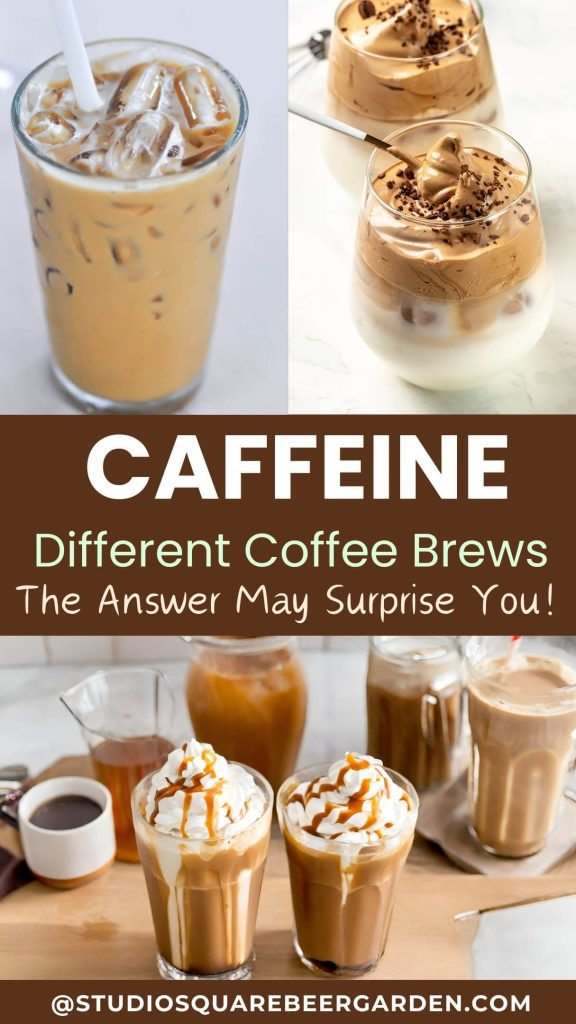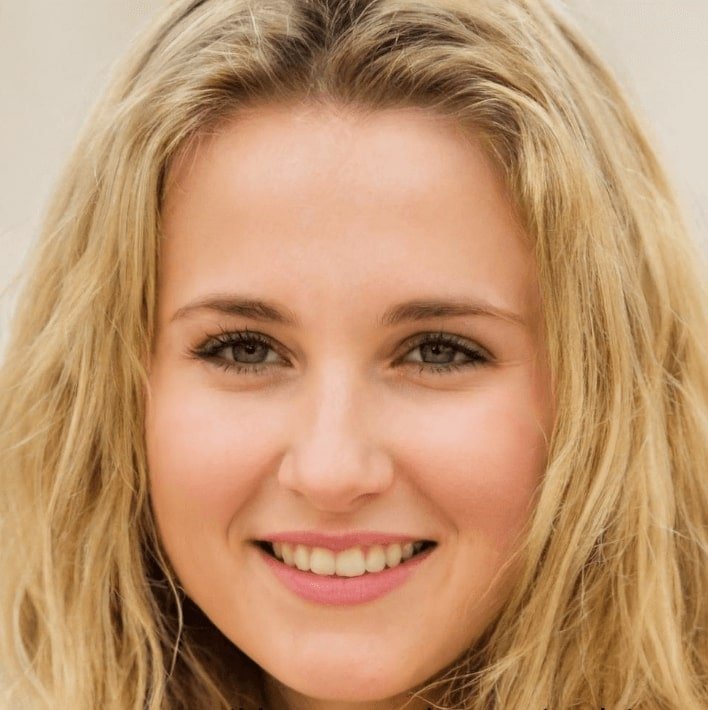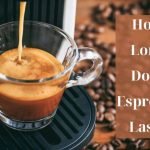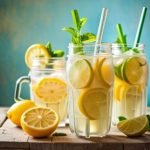Contents
- 1 How Much Caffeine in Coffee?
- 1.1 What is Caffeine?
- 1.2 Factors Affecting Caffeine Content in Coffee
- 1.3 How Much Caffeine in Coffee?
- 1.4 Health Benefits and Risks of Consuming Caffeine
- 1.5 Conclusion:
- 1.6 Top 15 Keto Snacks for Christmas You'll Absolutely Love
- 1.7 How Long Does Espresso Last? Expert Storage Tips
- 1.8 How to Make Coffee Yogurt: A Comprehensive Guide
- 1.9 10 Refreshing Summer Drinks to Keep You Cool - Beat the Heat!
How Much Caffeine in Coffee?
Coffee has become the lifeblood of our modern societies, fueling the early risers, the late-night workers, and those in between. It’s a cultural phenomenon, a social lubricant, and a habit many of us can’t imagine giving up.
But beyond the rich taste and aromas of our favorite brews lies a key factor that keeps us coming back—caffeine. This potent stimulant is the magic in our morning elixir, which jumpstarts our day. But have you ever wondered just how much caffeine is in your cup of coffee? Does it really make a difference?
In this blog post, we inspect the caffeine content of different coffee varieties, laying bare the facts for coffee lovers, caffeine seekers, and the health-conscious alike.
What is Caffeine?
People have been consuming caffeine, a natural stimulant, from coffee beans and other plants for centuries. It works by blocking the effects of adenosine, a neurotransmitter in our brains that promotes relaxation, leading to increased alertness and improved mental performance. However, too much caffeine can also cause jitters, anxiety, and disturbed sleep patterns.
Measuring caffeine content in coffee is essential for understanding your intake and managing potential caffeine-related side effects. It can also be a useful tool for controlling consumption for those with conditions that may require less caffeine, such as pregnancy or heart conditions.
The Food and Drug Administration (FDA) recommends an upper limit of 400 milligrams (mg) of caffeine per day—that’s around four 8-ounce cups of brewed coffee.
Factors Affecting Caffeine Content in Coffee
Before we get into the specifics, it’s essential to understand the variables that can sway the caffeine content of your coffee. The coffee bean type and origins, processing method, roast level, grind size, and brewing technique all play integral roles.
For instance, robusta beans contain significantly more caffeine than their aromatic arabica counterparts, while a finer grind size can extract more caffeine during brewing. The brewing duration and temperature, water-to-coffee ratio, and even high-altitude brewing may all have an impact on the final caffeine concentration.
How Much Caffeine in Coffee?
Let’s undertake a comprehensive exploration of the caffeine content in some of the most common coffee types:
Caffeine in Brewed Coffee
Brewed coffee, the staple beverage of millions, is where most daily caffeine intake stems from. An 8-ounce (240-milliliter) cup typically provides a dose ranging from 70 to 140 milligrams of caffeine. Variations in bean type, roast, grind, and brewing method account for the discrepancies in caffeine levels.
Single-origin light roasts, ground to medium consistency and brewed using the pour-over method, for instance, might offer a higher caffeine content than a dark roast brewed with a press pot due to the different surface area and the interaction with hot water.
Caffeine in Instant Coffee
For those on the go, instant coffee offers convenience with a moderate caffeine kick. A cup provides approximately 30 to 90 milligrams, whereas an average is frequently the most representative.
Instant coffee is produced by freeze-drying or spray-drying brewed coffee, which might slightly reduce the caffeine content but not significantly enough to disrupt a caffeine routine.
Caffeine in Espresso
Contrary to popular belief, espresso shots are not just a concentrated serving of caffeine. While they do contain more caffeine per ounce than regular-brewed coffee, with an average of 63 milligrams in a 1-ounce shot, the overall serving size means you’re consuming less caffeine than your usual cup.
Nevertheless, the “crema” layer on top of a well-brewed shot is a sign of quality and concentration, which intensifies the taste and caffeine experience.
Caffeine in Espresso-Based Drinks
Espresso-based beverages like lattes and cappuccinos bring a delightful balance of espresso and milk, varying in caffeine content depending on the number of shots used.
A typical 8-ounce latte with two shots can contain around 150 milligrams, with the milk tempering the coffee’s bite. This is not substantial compared to brewed coffee, but the flavor complexity and customizable ratios speak to the appeal of such drinks.
Read more: How Much Caffeine In Matcha?
Caffeine in Decaf Coffee
Decaffeinated coffee drinkers aren’t necessarily caffeine abstinent. The decaf process uses various techniques, like the Swiss Water method, to remove at least 97% of the caffeine. However, a cup of decaf still yields a minor amount, usually around 2 to 5 milligrams per 8-ounce cup. The level is so low that it’s unlikely to disrupt sleep or cause the typical caffeine ‘jitters.’
Health Benefits and Risks of Consuming Caffeine
Caffeine is known to deliver a spectrum of benefits, from enhancing mental clarity to improving physical performance. It stimulates the central nervous system, essentially keeping the body on its toes. Athletes rely on it for that extra edge, and students for those late-night study sessions.
However, with great power comes great responsibility, and caffeine is no exception. Excessive consumption can lead to jitters, heightened anxiety, and sleep disturbances. Its diuretic effects are also well documented, which means quicker bathroom breaks but also a potential loss of valuable hydration. Experts often advise pregnant women and individuals with certain health conditions to limit their caffeine intake.
Conclusion:
Coffee, as a widely indulged beverage, is as much about the caffeine it carries as it is about its flavor and aroma. The caffeine content in coffee varies due to several factors, like coffee beans, roasting method, type of coffee, and serving size.
Having a comprehensive grasp of the caffeine content in various coffee types and brands empowers you to make well-informed choices about your caffeine consumption.
Remember, moderation is the key when it comes to enjoying your caffeinated beverages. Savor your coffee responsibly, appreciating every rich flavor that each sip brings along.

Related posts:

Hello, my name is Mary. I’m a passionate food and drink enthusiast, sharing flavorful recipes, creative drinks, and culinary inspiration from around the world. With a love for exploring new tastes and traditions, I bring a mix of easy-to-follow guides and expert tips to make every meal an adventure. Follow along for delicious discoveries and a toast to positive living!




